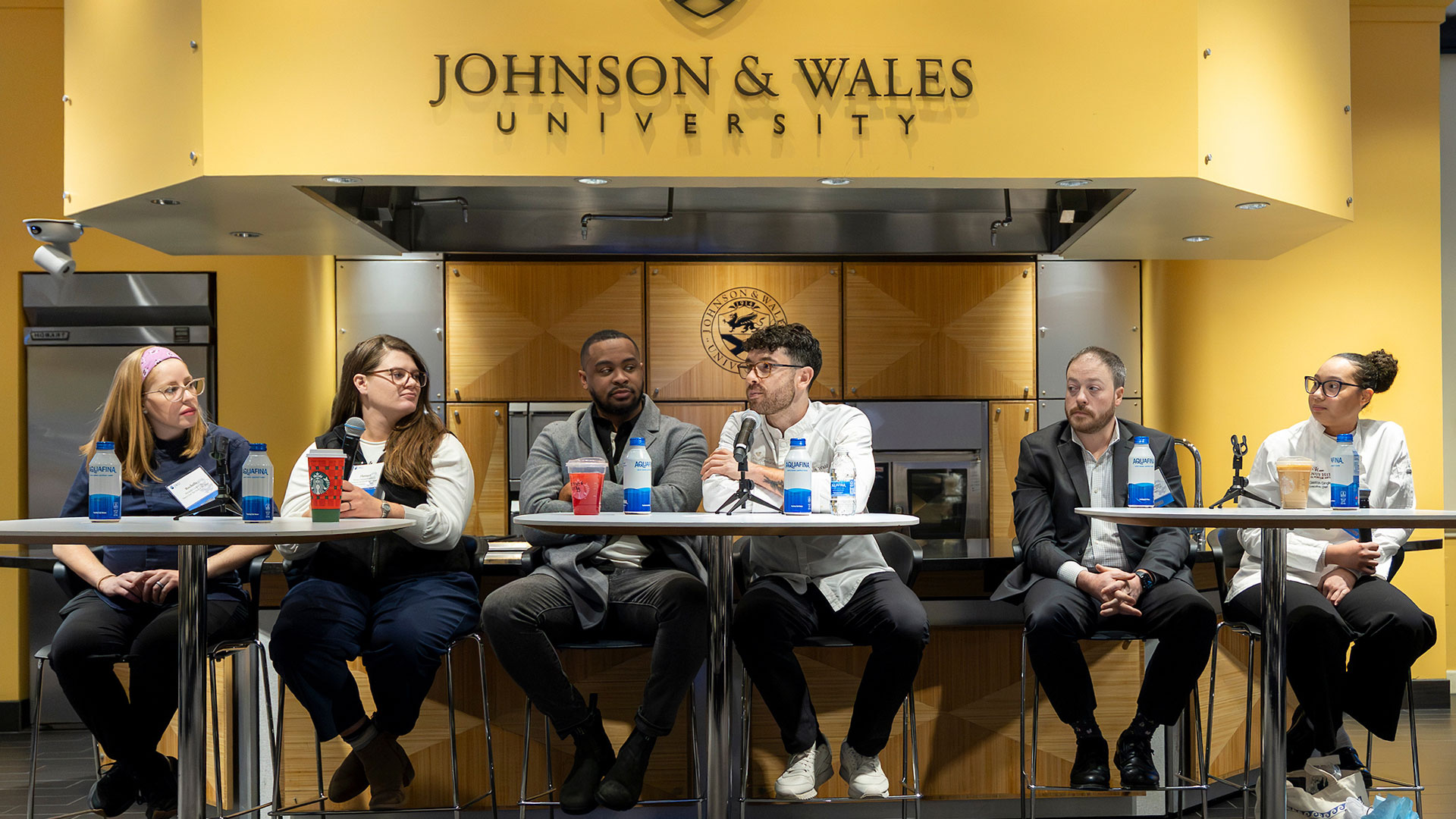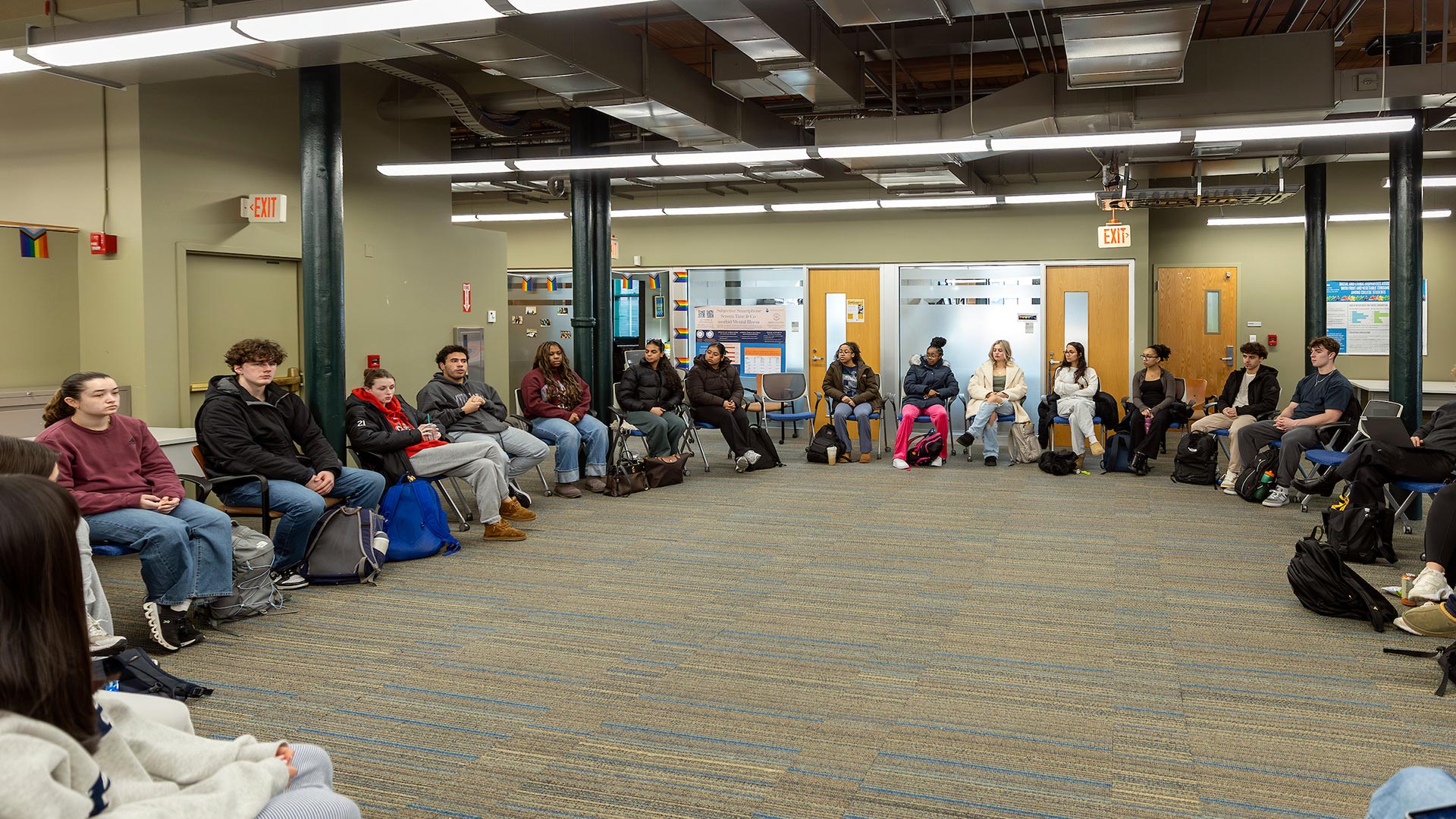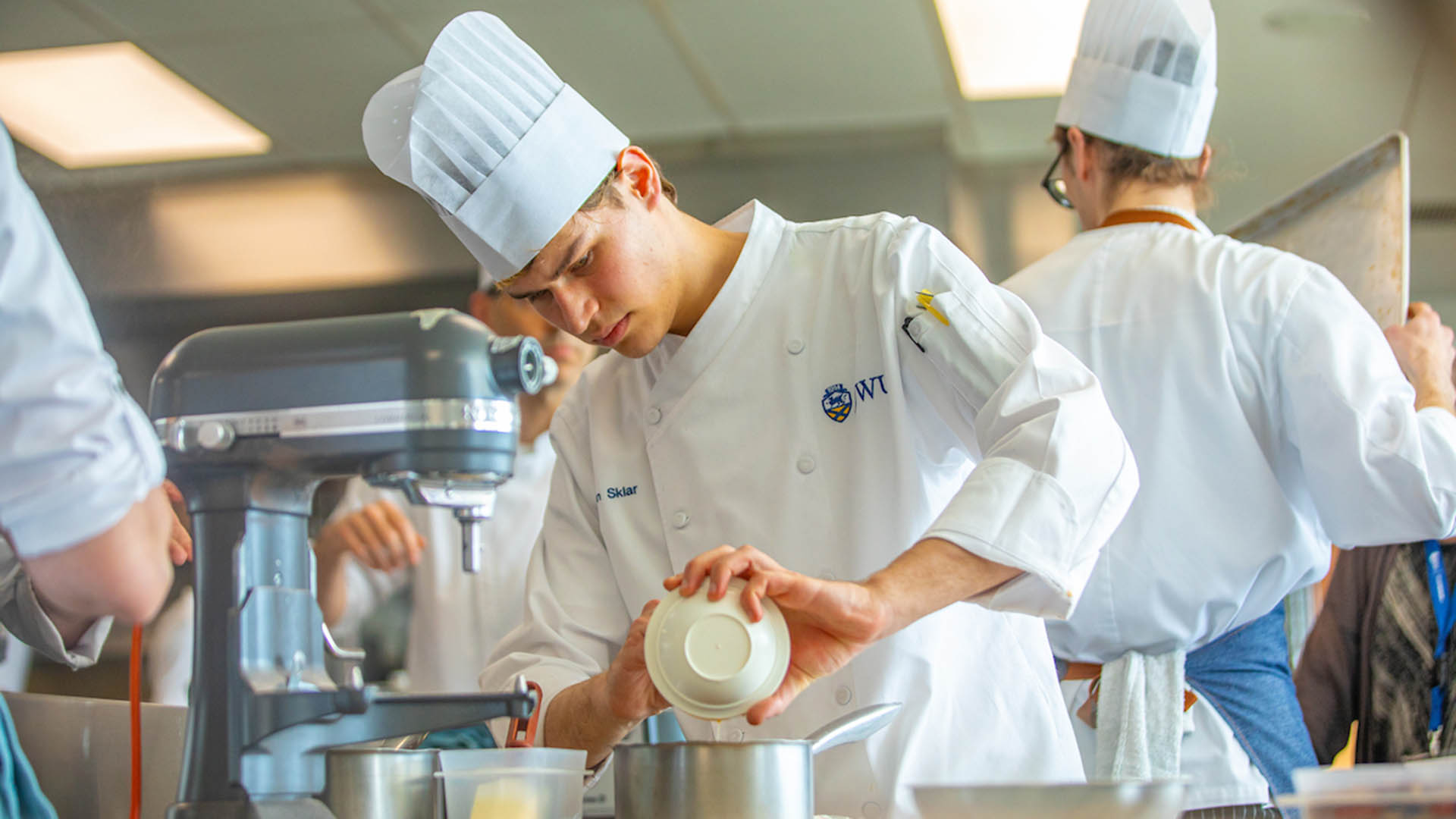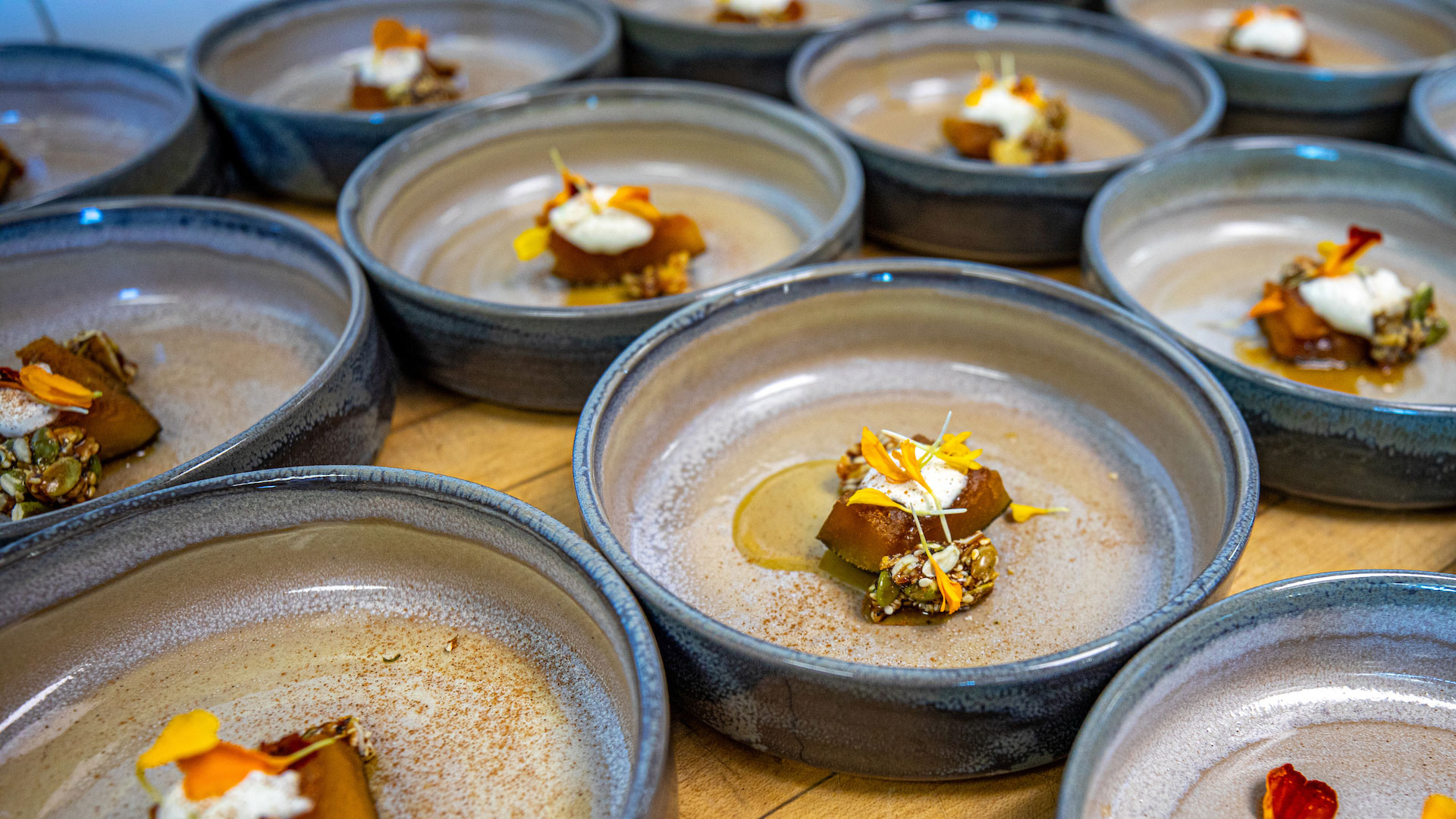JWU Teaching Kitchens Take Shape
Great food comes naturally to Johnson & Wales — we’re renowned for our College of Food Innovation & Technology (CFIT). But what truly sets us apart in the world of culinary education is that we also have a fast-growing College of Health & Wellness where students can explore how food impacts health through nutrition and dietetics.
“Johnson & Wales has had a foot in the culinary nutrition world – which is really the nexus of food and wellness – for a very long time,” says Jason Evans, Ph.D., dean of the College of Food Innovation & Technology. “Our Culinary Nutrition program is pretty unique, as is our Dietetics and Applied Nutrition program. It really has to be one of the only dietetics programs in the country — maybe the only — where students actually go through a significant amount of in-kitchen labs and cooking training.”
This unique crossover between health and food made JWU the perfect choice to join the Teaching Kitchen Collaborative (TKC), an organization that aims to build a global network of culinary medicine professionals to share knowledge and support teaching kitchen programming. It was founded in 2016 by Dr. David Eisenberg, who has since worked to bring in universities, medical, community and corporate institutions around the U.S. and abroad. Eisenberg felt that JWU was perfectly positioned to be a leader in teaching kitchen programming and encouraged us to officially join the collaborative in 2023.
“We are unique from really any other university, and I know that was why Dr. Eisenberg really wanted us to be a part of the TKC,” says Leslie Van Horn, an assistant professor in the Culinary Nutrition program. “That is a huge selling point for our program, that we can offer the culinary training that other nutrition and dietetics programs don't have.”
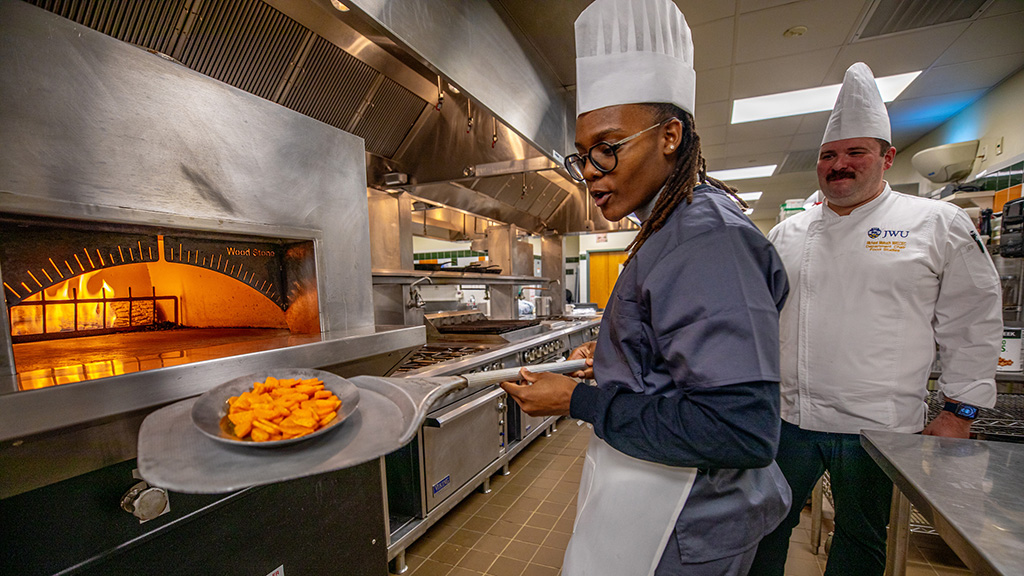
“It's not necessarily the case that a dietitian knows how to consult a client or a patient about what to cook and how to cook — they're really working on the macro and micro nutrient level,” Evans adds. “A patient is always going to come in with a list of foods that they really like to eat and can afford. Dietitians often don’t have the training in food to be able to turn that into a workable meal plan.”
JWU hopes to change this by ensuring our nutrition and dietetics students are equipped with the skills to teach patients not only what to eat but how to cook it. Teaching kitchen programming has been instrumental to their education, bringing them into the kitchen to team up with their culinary peers and learn to make the meals they have designed for different health needs.
Producing a new generation of kitchen-savvy dietitians is not the only goal of our teaching kitchen efforts. There is also a much broader impact for all members of the JWU community and the local communities that surround our campuses in Providence, Rhode Island and Charlotte, North Carolina.
Bringing Teaching Kitchen Programming to the Community
In Charlotte, Van Horn and other faculty members have been hard at work getting their students out into the community for presentations, recipe creations and cooking demos at a variety of health centers, nonprofit organizations, churches and food pantries.
Throughout the 2024-2025 academic year, students and faculty completed a dozen engagements including four with The Bulb, a local nonprofit that provides recovered produce to low-income communities in the Charlotte region. Projects with The Bulb included creating recipe cards and nutrition education materials, conducting food demonstrations at farmer’s market events and developing a survey to gather information on recipients’ interest and preferences for future teaching kitchen events.
Two engagements were also completed with Nourish Up, the largest network of food pantries in North Carolina. This connection has helped facilitate internship opportunities for JWU students. “One of our Culinary Nutrition students will be doing an internship with Nourish Up, helping with culinary demonstrations alongside the dietitian they have on staff,” Van Horn shared. “Lots of opportunities like that are starting to present themselves for students.”
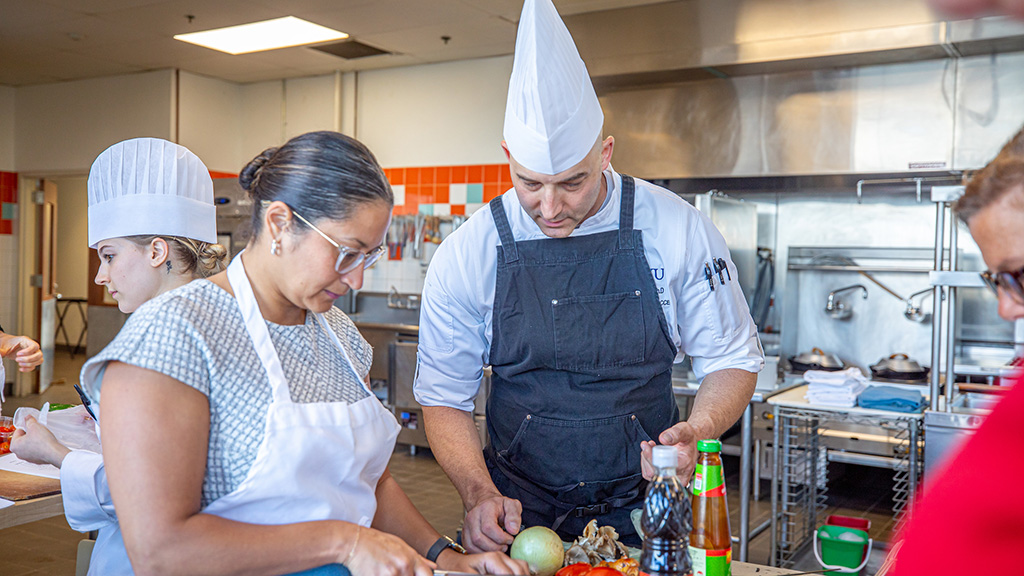
In Providence, Professor Jonathan Poyourow has led the charge with fellow faculty and students to develop educational content and complete a number of trainings and workshops. This has included a sports nutrition workshop with the AHL’s Providence Bruins, trainings with Brown University Health doctors and an educational video series for One Cranston Health Equity Zone.
JWU has had longstanding relationships with the Bruins and Brown University, but the new connection to One Cranston came from a graduate student, Amara Weier ’24, ’26 MAT. Weier began working for the initiative, which supports Cranston residents through health education programming, and realized that JWU could also get involved. She brought the idea to Poyourow, and he helped Weier and Dietetics and Applied Nutrition student Rachel MacLean ’25 film short cooking demo videos for One Cranston to share with their clients on Facebook.
“Their clientele is a mix of people who struggle and need support in the kitchen and people who are more comfortable in the kitchen,” Weier said. “Some live in food deserts. I like that One Cranston gives them produce packets to make the recipes. It’s important to offer families the opportunity to experiment – to buy different ingredients, swap things in or out – it hopefully leads to more confidence and more fun in the kitchen.”
How Teaching Kitchens Impact Current JWU Students
Similar to the work being done in the community, JWU also has numerous on-campus efforts to provide students access to nutrition education and offer free meals to students in need.
“A big part of teaching kitchens and food-as-medicine is addressing food insecurity,” Van Horn said. “We know that college students have staggering rates of food insecurity.”
Charlotte’s CFIT Care Cupboard and Providence’s Wildcat Food Rescue initiatives aim to address this issue. They recover food from culinary labs to create free takeaway meals that are placed in coolers around campus for students to take as needed. These coolers are restocked weekly — Charlotte students can find the Care Cupboard on the fourth floor of the Academic Center, and Providence students can find Wildcat Food Rescue coolers in the Wildcat Center and the CCCE building at Harborside, as well as one in Johnson Hall on the Downcity Campus.
Student athletes have also taken part in nutrition and culinary classes to learn what kinds of meals can improve their performance and how to make them. “But, it's not just athletes that we want to provide cooking and nutrition education to,” Evans said. “Eventually, we want to get to a point where all Johnson & Wales students can just expect it as part of the return on investment. They can engage in wellness programming and learn some life skills here that have tremendous value.”
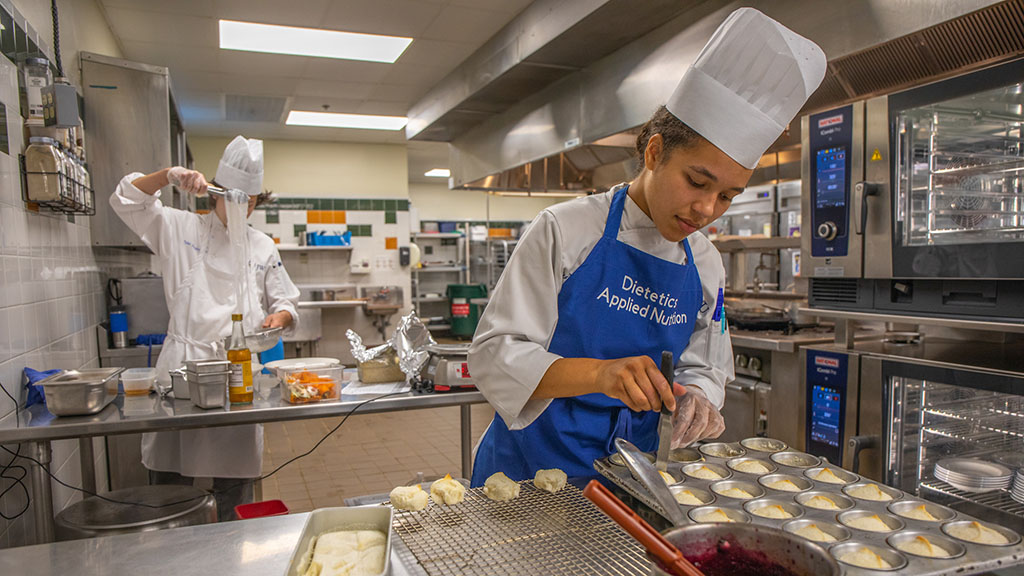
Looking Ahead: How JWU’s Teaching Kitchens Will Continue to Grow
JWU will continue expanding the teaching kitchen programming at both campuses by maintaining existing partnerships and seeking new opportunities. Applying for grants and receiving donations is an important component of the expansion plans and has already helped the programs tremendously.
“We recently received an incredible donation of over 100 induction burners from Restaurantware,” Evans shared. “These kinds of portable items are needed to expand teaching kitchen programming on the road, where we're doing cooking demonstrations at partner organizations like food pantries or nonprofits. Those induction burners are really key to how we deliver programming.”
Support like this is essential to powering teaching kitchens — not only at JWU but across the country. “That's the cool thing about teaching kitchens — there can't just be one and only one,” said Poyourow. “Every area needs to have one, because it’s about trying to better the population through healthier food choices.”
Stay tuned for what our teaching kitchens do next!
